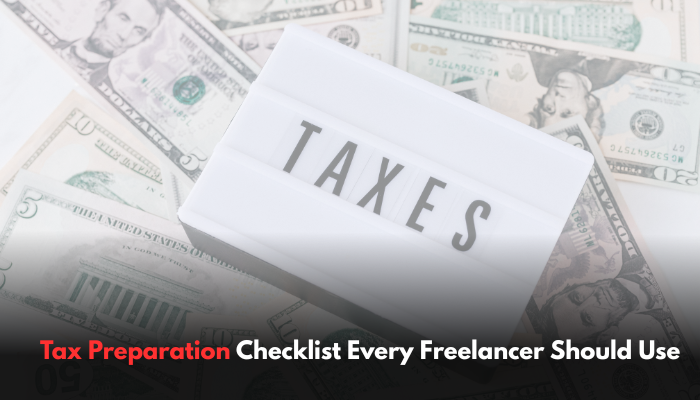
Freelancing gives you freedom creative control, flexible hours, and the chance to build your own business on your terms. But it also brings added responsibilities, especially when it comes to managing finances. Among the most important of those is tax preparation. Unlike traditional employees, freelancers are responsible for tracking income, managing expenses, and paying their own taxes often without the help of an in-house payroll or finance team.
To help you stay organized and avoid surprises come tax season, here’s a comprehensive tax preparation checklist tailored for freelancers. Use this guide to ensure nothing slips through the cracks and to approach tax time with confidence, not confusion.
1. Gather All Sources of Income
The first and most crucial step in tax preparation is compiling all the income you’ve received throughout the year. Since freelancers often work with multiple clients, keeping track of every payment is vital.
Documents to collect:
1099-NEC forms (for U.S. freelancers)
Invoices sent to clients
PayPal, Stripe, or bank payment summaries
Income from platforms like Upwork or Fiverr
Any affiliate or ad revenue
Even if you don’t receive a tax form for every gig, it’s your responsibility to report all income earned.
2. Organize Your Business Expenses
Accurate expense tracking helps lower your taxable income and is an essential part of responsible tax preparation. Freelancers are eligible to deduct many business-related costs, but those expenses must be well-documented.
Common deductible expenses include:
Office supplies and equipment
Software subscriptions and tools
Internet and phone bills (portion used for work)
Travel expenses related to client work
Marketing or advertising costs
Continuing education and online courses
Use a tool like QuickBooks, Wave, or even a simple spreadsheet to stay on top of this monthly not just at year-end.
3. Separate Personal and Business Finances
Mixing personal and business expenses is one of the most common freelancer tax mistakes. For clearer bookkeeping and smoother tax preparation, open a dedicated business bank account and credit card.
Benefits of separating finances:
Easier expense tracking
Fewer errors during deductions
Clearer cash flow visibility
Professional credibility
This step may seem small, but it greatly simplifies financial organization and reduces the chance of costly mix-ups.
4. Calculate and Pay Estimated Taxes Quarterly
As a freelancer, you don’t have an employer withholding taxes from your paycheck. That means you’re responsible for paying estimated taxes to the IRS (or local tax authority) every quarter.
What to keep in mind:
Estimated payments are due four times a year
Late or missed payments may result in penalties
Use IRS Form 1040-ES or your accountant’s guidance
Being proactive with quarterly payments ensures you avoid large year-end tax bills or surprises.
5. Track Mileage and Travel Deductions
If you travel to meet clients, attend conferences, or run business errands, you may be eligible for travel-related deductions. Mileage and travel costs can add up over time and offer significant savings during tax preparation.
What to document:
Date and purpose of the trip
Miles driven (using a tracking app or logbook)
Fuel, parking, and tolls
Airfare, lodging, and meals if travel is overnight
Always keep detailed records, and use tools like MileIQ or TripLog for automatic tracking.
6. Collect and Organize Receipts
Even though many expenses are handled digitally, physical and digital receipts still play a critical role in tax preparation. You may need them to prove deductions if you’re ever audited.
Best practices:
Use a cloud-based storage system (like Google Drive)
Scan and save paper receipts regularly
Label and categorize files by expense type
Keep backup copies of digital receipts
Some freelancers use apps like Expensify or Shoeboxed to automate receipt organization, which can be a real time-saver.
7. Review Health Insurance and Retirement Contributions
Freelancers may qualify for deductions related to health insurance and retirement savings. These deductions reduce taxable income and can improve your financial future.
Deductions may include:
Self-employed health insurance premiums
HSA (Health Savings Account) contributions
Contributions to a SEP IRA, Solo 401(k), or traditional IRA
Consult a financial advisor to determine your eligibility and maximize your retirement planning.
8. Keep Track of Home Office Expenses
If you work from home, you may be entitled to deduct part of your living expenses as a home office deduction. This is one of the more misunderstood areas of tax preparation, so be sure to follow IRS guidelines carefully.
Expenses that may be deductible:
A portion of rent or mortgage interest
Utilities like electricity and internet
Depreciation on your home
Repairs specific to your home office space
The IRS offers both a simplified method and a detailed method—choose what benefits you most.
9. Review Previous Year’s Tax Return
Looking back at last year’s return is a helpful way to make sure you haven’t missed any deductions or sources of income. It also gives you a benchmark for your current tax preparation process.
What to review:
Deductions you claimed last year
Client payments from ongoing contracts
Any carryovers (like home office or depreciation)
If anything looks significantly different, make sure there’s a clear reason or check with a tax expert.
10. Decide Whether to Use a Tax Professional
While many freelancers try to handle taxes solo, a growing number find value in working with a tax advisor or accountant especially as their income grows or their business becomes more complex.
When to consider hiring help:
You earned income from multiple states or countries
Your deductions are increasing in complexity
You’ve formed an LLC, S-corp, or other business structure
You’ve been audited before
Outsourcing tax work not only reduces stress but can often uncover additional deductions or credits you might miss on your own.
Final Note
Freelancing offers incredible flexibility but it also comes with financial responsibilities that can't be ignored. With this tax preparation checklist, you’ll be better prepared, more organized, and less stressed when tax season rolls around. If this checklist feels overwhelming or time is tight, it may be worth it to outsource tax preparation services to a reputable provider.
Many freelancers choose to work with outsourcing firms that specialize in handling freelancer and small business tax cases. Some of the best outsourcing companies, especially those based in India, offer experienced professionals at a cost-effective rate without compromising on quality.
To explore how visuals can directly impact your brand’s success, take a moment to read our post on Why Good Graphic Design Matters for Your Business.


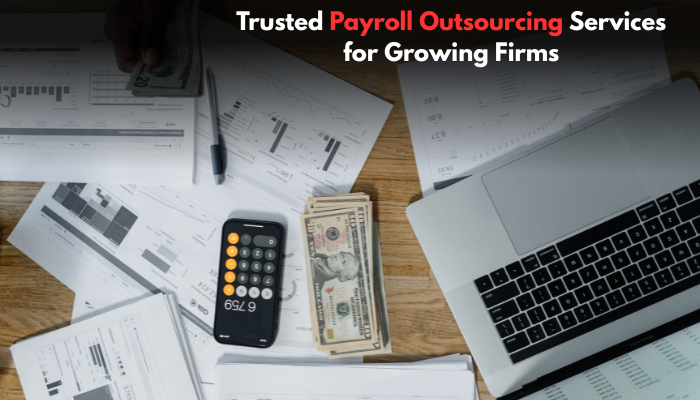


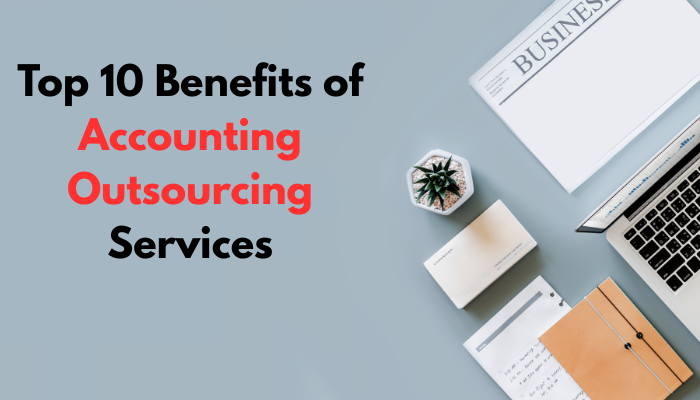
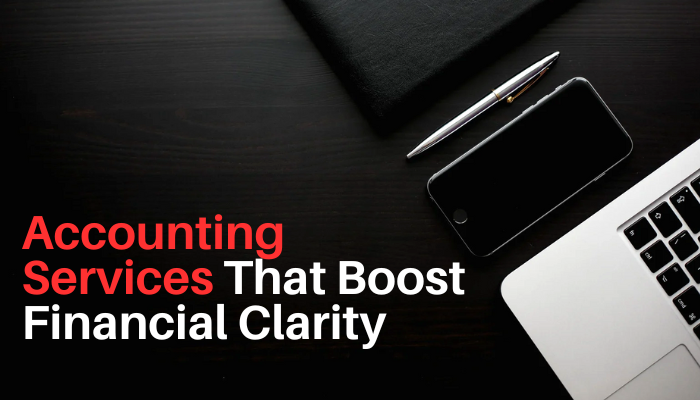






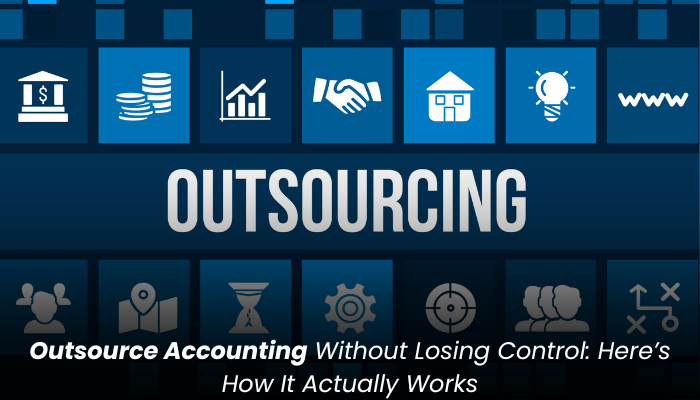
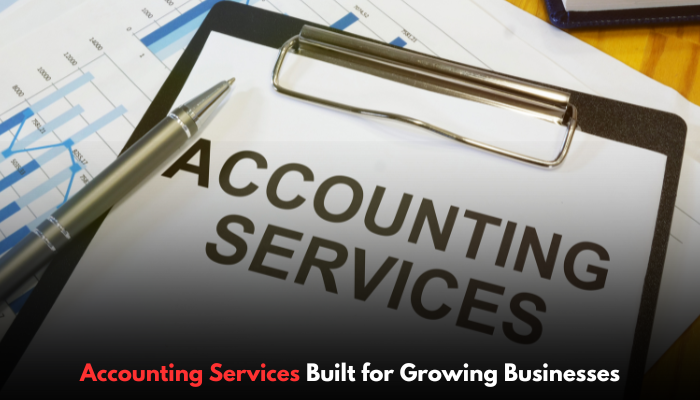


Write a comment ...